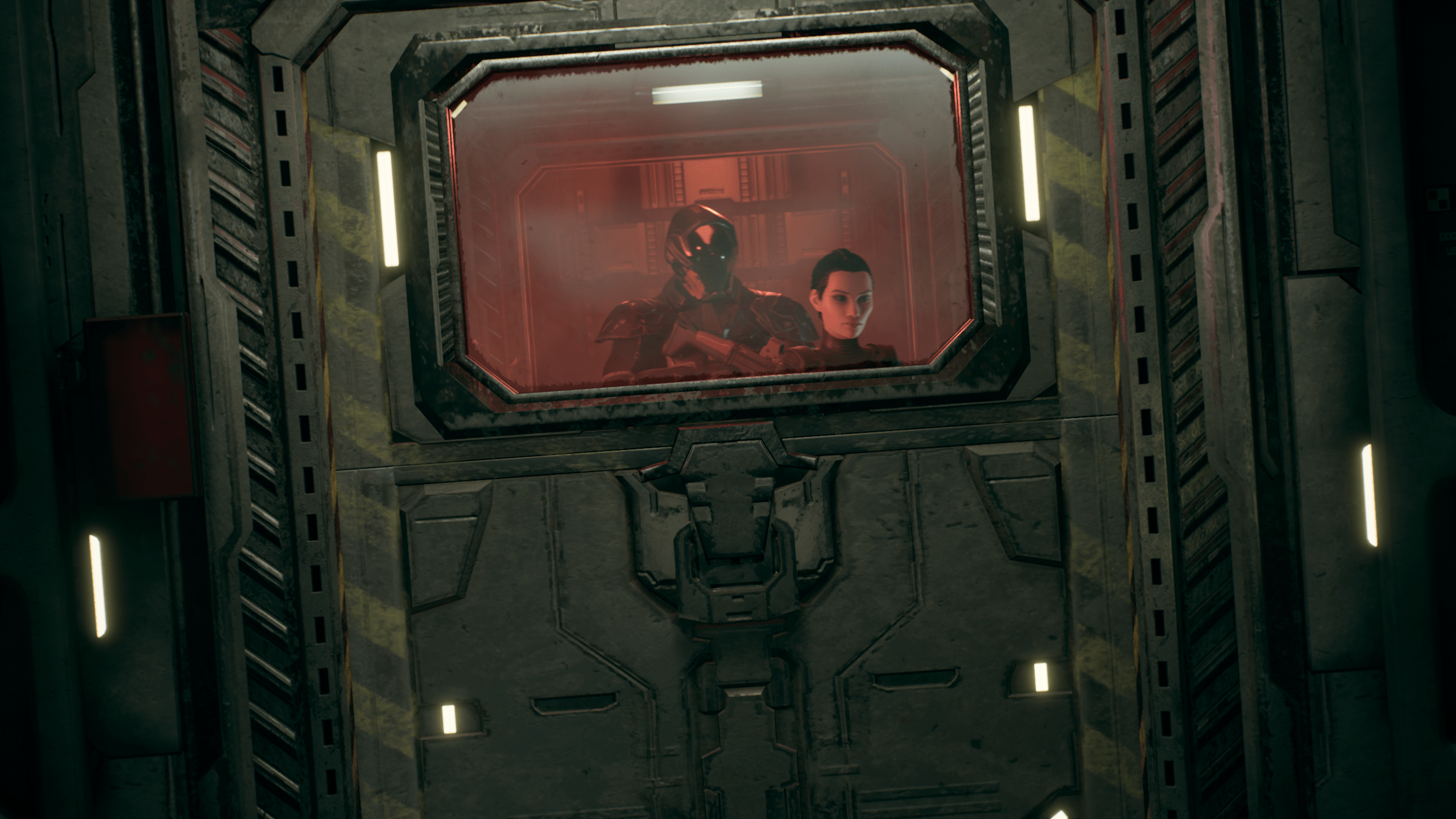With the fifth and final episode of The Expanse: A Telltale Series, the nearly two-month journey reaches its conclusion. Even though I did an impression-based and non-scored review for each episode prior, this final episode will go over my thoughts on the entire adventure.
(Previous reviews: Episode 1 | Episode 2 | Episode 3 | Episode 4)
I was cautiously optimistic coming into The Expanse: A Telltale Series. I’m a huge fan of the show, and while Telltale titles—and more importantly, Deck Nine—have been pretty hit or miss for me in the past, they typically do storytelling right. And, when it comes to The Expanse universe, that’s what interests me: the story. Overall the experience had a few highs, and a few more lows, but there is certainly some enjoyment to be had.

The Expanse: A Telltale Series (PC [Reviewed], PS4, PS5, Xbox One, Xbox Series X|S)
Developer: Deck Nine
Publisher: Telltale
Released: September 21, 2023
MSRP: $39.99
Welcome aboard the Artemis, beltalowda
The first episode set the stage for the rest of the package. By the end of the first story, Camina Drummer is the captain of the Artemis, leading a crew of five others. Again, the narrative takes place before the events of the TV show and serves as a bit of a backstory for Drummer. The original voice actress, Cara Gee, reprises her role and nails it every step of the way. If you’re a fan of the show like I am, Deck Nine nailed it in terms of fitting into what we know and love from the source. However, the decision to set The Expanse: A Telltale Series before the events of the show definitely hamstrung it a good bit.
The bigger-picture narrative simply doesn’t feel important, which is one of its biggest stumbling blocks. One of the strengths of the show is its storytelling, including backstory. Upon completing The Expanse, despite having fun, I found myself wondering if this story really needed to be told. In the final episodes, you get a little more information about Drummer’s time in the OPA organization: but in the end, the details weren’t all that important. I’d love to see The Expanse which takes place after the events of the show. After all, there’s a roughly three-decade time jump between where the show left off and the events in the next book, so there’s plenty of possibilities for storytelling in between.

A short but beautiful journey
Telltale titles have never been long by any means, but The Expanse feels even shorter. I played each Episode as they were released, with two weeks in between them. In the end, my total playtime was just under six hours, and I explored and interacted with everything I possibly could. Don’t get me wrong, a narrative-driven game can certainly be short and sweet. But I think my bigger issue here is price. At $40, six hours is a bit on the lower end. For comparison, The Wolf Among Us was 9-10 hours on average and was only $20. I understand there are potentially higher costs involved when it comes to licensing The Expanse, not to mention getting Cara Gee to voice Drummer. But at some point, you do have to consider whether there’s enough there to justify the price. Of course, that’s up to the individual player more than anything.
With that in mind, even though it’s short, it’s a beautiful journey. This is the most visually beautiful Telltale game yet. And with most of the episodes taking place in space, it’s nice to have the beautiful backdrop of deep space to look at. The first couple of episodes both take place amongst ship debris in deep space, which started to feel repetitive. But each episode is well crafted and designed to fit the theme of The Expanse universe. There are even a couple of space combat scenes that feel like they are right from the show. If you are a fan, you know this is a good thing.

A building block for Telltale gameplay
Though past Telltale titles have been considered “walking simulators”, that wasn’t really the feeling I got with The Expanse. There’s a range of freedom to run around, not to mention the ability to disable your grave boots in Zero-G and float. It’s a nice touch for a narrative game, and a step forward for Telltale titles.
There’s a handful of mini-games scattered throughout the episodes as well. You’ll find yourself cutting through hull sections to find items, dodging lasers from drones trying to find you, and properly routing power between junction boxes to enable devices. The added element of gameplay isn’t necessarily game-changing, but it does help spice up the adventure through this narrative-focused tale.
However, there are some growing pains as well from adding more gameplay elements. Throughout each episode, you’ll find various collectibles such as data logs and Salvage. The data logs are pretty much just some extra story, but collecting the Salvage seems to have no purpose. In the first episode, Drummer comments that the Salvage could be useful, but then nothing is ever done with it. You’ll find several other collectible items that do have a purpose. For example, in the first episode, you can find a focusing laser crystal to give to the Doctor on board the Artemis. But Salvage just seems to exist to exist.

Do choices ever really matter?
The ability to make your own decisions is a big part of any narrative title, especially a Telltale title. At the end of the first episode, you’re presented with your first big decision which is essentially to kill someone or let them live. The choice feels very important at the time. However, I realized later that regardless of your decision, you just don’t see that person anymore. So in the end, did the choice really matter?
In typical Telltale fashion, you are shown the decisions the community has made at the end of each episode. Looking through one of the potential outcomes of a decision in the third episode made me very curious to see what could happen. So, I made a separate save just to see how much it actually changed: I got a few extra lines of dialogue, but then the rest of the episode played out exactly like my original playthrough.

“Truth is truth. How you deal with it is up to you.”
In the end, The Expanse: A Telltale Series feels like a slightly above-average Telltale game. Visually it’s the best we’ve seen yet, and the added gameplay elements are certainly moving in the right direction. If you’re looking to consume any canon The Expanse content and are willing to pay a premium to do so, you’ll enjoy what Deck Nine is offering. Just expect the story to enhance what you know about The Expanse, not build upon it.
It’s important to note that for anyone who hasn’t watched the show, it’s a tougher recommendation. While it does technically serve somewhat as a prequel, and it is its own standalone experience, I just don’t know if there is enjoyment to be had playing through it if you aren’t already on board with the universe. Most of the enjoyable moments for me were when I could relate to something from the show, or learning some more Belter (one of the languages in this world).
Unfortunately The Expanse: A Telltale Series probably won’t stick with me like The Wolf Among Us or even The Walking Dead did. But there is still some fun to be had, and it’s proof there is the potential to add a little more gameplay to Telltale titles. I even think another proper Expanse entry that has a bit more meaningful of a story to tell could be perfect for the Telltale formula. If that happens, I hope the narrative doesn’t play it too safe next time.
[This review is based on a retail build of the game provided by the publisher.]









